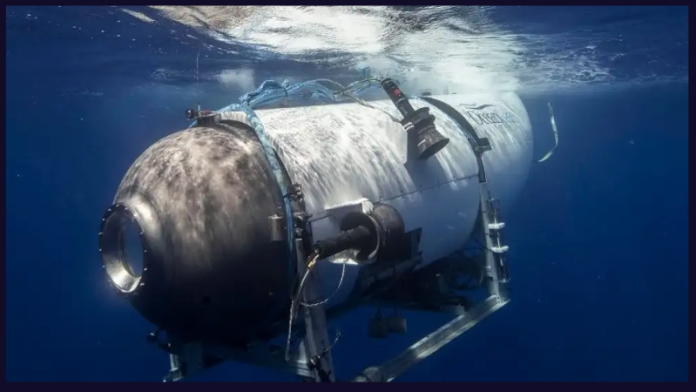The US Coast Guard on Wednesday confirmed that a Canadian P-3 aircraft “detected underwater noises in the search area” for the missing tourist submarine with five people on board.
In a series of tweets, the Coast Guard said: “Canadian P-3 aircraft detected underwater noises in the search area. As a result, ROV operations were relocated to explore the origin of the noises. Those ROV searches have yielded negative results but continue.
“Additionally, the data from the P-3 aircraft has been shared with our US Navy experts for further analysis, which will be considered in future search plans.”
This is the first official confirmation from authorities conducting the search operation, although they did not specify what the “banging” sounds were, reports the BBC. Before the official confirmation by the US Coast Guard, several American media outlets citing internal US government memos reported that a Canadian search aircraft detected “banging” in 30-minute intervals coming from the area where the sub disappeared on June 18.
It is unclear when and how long the banging lasted.
According to the Coast Guard, the submarine was lost about an hour and 45 minutes into its dive to the Titanic’s wreckage in the Atlantic on June 18. The missing vessel is tour firm OceanGate’s Titan submersible, a truck-sized sub that holds five people and usually dives with a four-day emergency oxygen supply.
Tickets cost $250,000 ( over two crore rupees) for an eight-day trip, including dives to the wreck at a depth of 3,800m.
A search operation is underway in an area in the ocean “larger than the state of Connecticut”, about 20,000 sq. km. Rescue teams from Canada’s Navy, Air Force and Coast Guard, and the New York state air guard are assisting. A French research vessel and Magellan, a British firm specialising in deep ocean investigations and recovery operations, have also joined the mission.
The Titan submersible is thought to be approximately 1,450 km east and 643 km south of Newfoundland’s capital, St John’s. US Coast Guard estimates that the Titan has roughly 30 hours of oxygen remaining on board.
The five passengers on board are Hamish Harding, a 58-year-old British adventurer who has previously been to space and multiple times to the South Pole, British businessman Shahzada Dawood (48) and his son Suleman (19), Paul-Henry Nargeolet (77), a former French Navy diver who has reportedly spent more time at the Titanic wreck than any other explorer and was part of the first expedition to visit it in 1987, and Stockton Rush (61), the chief executive of OceanGate.

